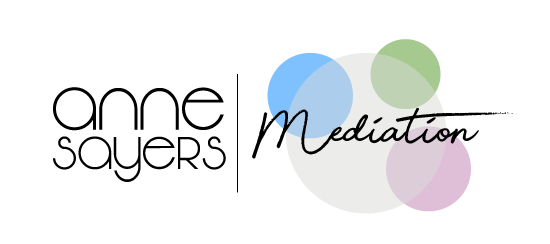Mediation is a type of Alternative Dispute Resolution (ADR). Mediation is a process where the disputing parties sit down together with the mediator and try to work out a mutually beneficial solution outside the courtroom.
Mediation is less adversarial therefore creates less animosity between parties. It is often the best process if a relationship is involved. It is also less expensive and faster than going through the legal process.
Any conflicts where you want or need to maintain a relationship with the other party are well suited for mediation. People usually think of mediators as typically dealing with divorcing or separating couples, but actually any type of conflict can benefit from mediation. Family conflicts related to estates or estrangements between adult siblings or adult children and their parents are well suited to mediation. A few sessions with a mediator can clear the air and pave the way for healing and the re-establishment of relationships.
I always recommend that people retain a lawyer. Both parties need to consult with their lawyer to determine their rights and responsibilities in order to be fully informed for mediation. Your lawyer is your advocate and will be working for you, the mediator is acting for both parties as a neutral party in the negotiations. Even if a mediator is a lawyer, when performing the role of mediator they cannot give legal advice. The mediator acts as a neutral party for both people and it is a conflict of interest to perform the role of lawyer and mediator at the same time.
Mediators are required to know the law in order to be accredited in their field. A mediated agreement has to fall within the parameters of The Divorce Act or the parties’ lawyers will not sign off on the agreement. Mediators know the law, they just can’t give legal advice to individuals while in mediation.
Mediation produces a document called a Memorandum of Understanding. Once the mediation has concluded, this document will be sent to each party’s lawyer so they can receive independent legal advice. Independent legal advice assures that parties understand what they sign and once parties have received independent legal advice, their lawyer will then sign off on it and the document becomes legal.
I start the mediation process with a conversation with each party. This is usually a 15-30 minute conversation that lets us get to know each other a bit. I ask for a brief summary of your situation and explain the basics of mediation. My most important concern at this point is to confirm that both parties are willing and able to attend mediation. Mediation can only work if both parties are willing to come to the table.
Once we’ve decided we might want to work together, then I will send out a brief questionnaire and set up an individual appointment for each party. This appointment is typically an hour and is the individual client’s confidential time to tell me about their particular issues and concerns as well as ask any questions they may have. This appointment is confidential unless the party assures me anything they say can be disclosed. Once both parties’ individual appointments have occurred, then we can schedule the mediation sessions.
I find two hours is usually the optimum amount of time for a mediation session. One hour isn’t quite long enough and any more than two hours, is too long. Although, sometimes, if everything is flowing along well, we could go past two hours. I usually ask people to set aside two hours for each session of mediation.
Each family’s circumstances are unique and will require different numbers of sessions but I always tell people to expect five sessions or ten hours at least. It is helpful when both parties are prepared both mentally and emotionally to work with each other. I like to give parties plenty of information prior to starting mediation so that we can have the best chance of a thorough and successful mediation.
The cost of mediation depends on how many hours of mediation a couple requires. Mediators charge a range of hourly rates; if a mediator is a lawyer, they will charge an hourly rate typical to their office hourly rate. Most mediators will charge somewhere in the two to three hundred dollar an hour range. Mediators expect that a couple will split the cost of mediation proportional to their income so this means that the mediator’s hourly rate will be split between both parties. Couples are in control to a certain degree of how much they spend; if they work together and are well prepared, mediation can proceed along fairly quickly. Either way, mediation is always more cost effective than the divorce process using lawyers because couples are working together directly and splitting the costs.
Related Documents
Related Links
www.familyportal.com – This website is a free service for those going through separation and divorce. It provides information and a step by step guide for options and services available to people in Ontario.
www.ontarioforms.on.ca – This website provides copies of documents that people will need to fill out to finalize a divorce or separation in Ontario.
Domestic Violence
For anyone experiencing domestic violence, there are several options available to them.
www.toronto.ca , www.torontopolice.on.ca and www.torontocentralhealthline.ca – These websites have lists of services and contact information for people within Toronto.
DIAL 211:
Text or live chat available from 7AM-9PM.
Assaulted Women’s Helpline:
416-863-0511 or 1-866-863-0511 (outside 416)
